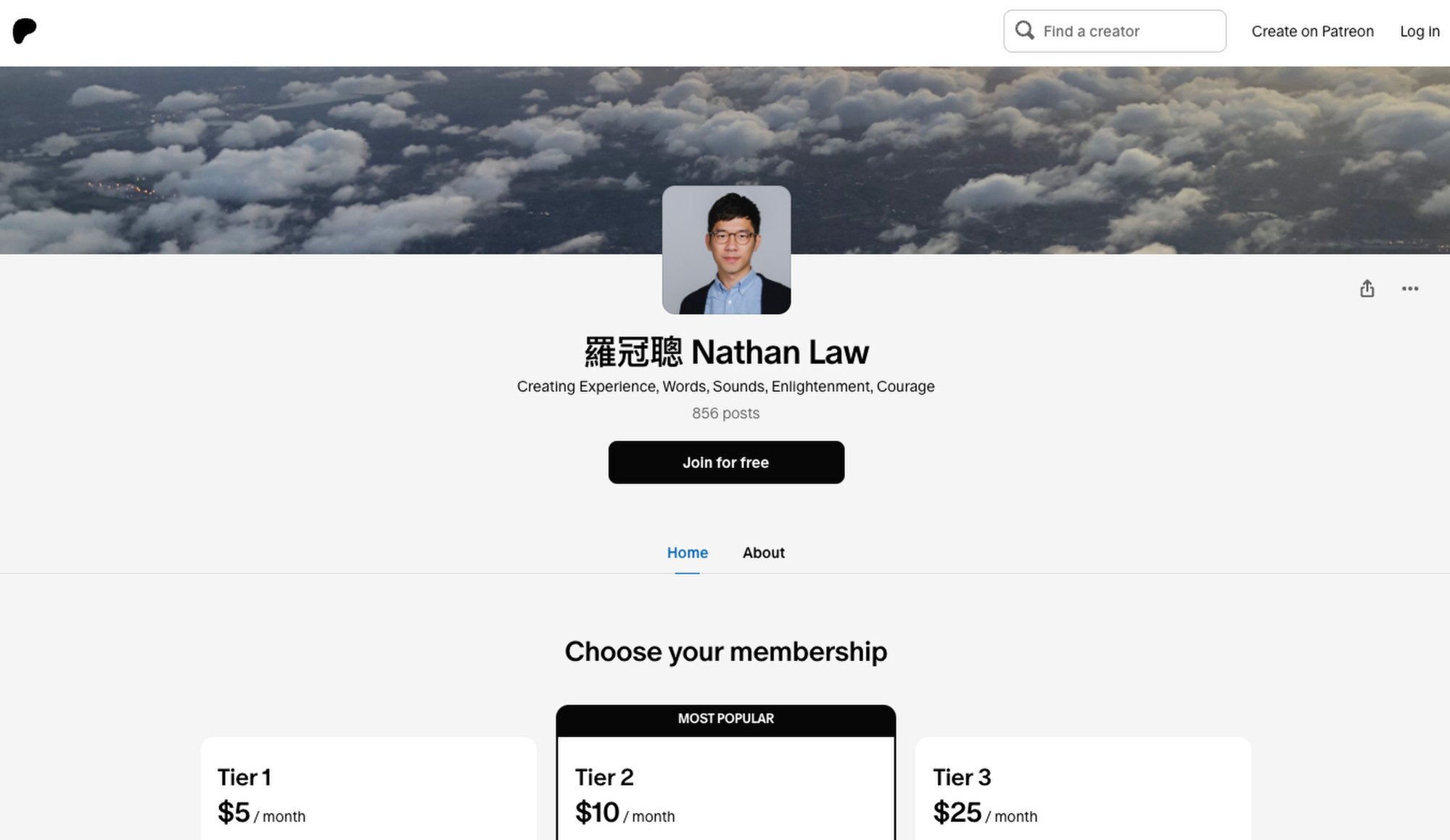
Hong Kong fugitives: Patreon platform will ‘not accept non-US requests’ for information
- But legal experts say platform could still be prosecuted, and those who support wanted activists’ pages might be deemed to be funding them
But legal experts said Patreon – a platform designed to help content creators monetise their work, and which three of the wanted activists use – could still be prosecuted under the Safeguarding National Security Ordinance.
The government also imposed three other measures to bar anyone from funding, leasing properties to and having “joint ventures or partnerships” with the fugitives.
Law has been active on San Francisco-based Patreon, charging subscribers HK$40 to HK$795 a month for content ranging from excerpts of his speeches to discussions about “people-to-people diplomacy”.
Two other wanted opposition figures, Johnny Fok Ka-chi and Tony Choi Ming-da, also have a Patreon page for their current affairs commentary channel called “Tuesdayroad”.

Patreon told the Post on Thursday that neither the Hong Kong government nor any of its law enforcement agencies had contacted the company.
“We do not accept requests for information from outside the US unless that request is domestic [and] in accordance with US law,” the spokesman said.
He added that the platform played a key role in ensuring creators could make money from their works and garner support from their communities, so the company took its role seriously and would continue to protect itself to sustain the businesses of content producers.
Grenville Cross, a former director of public prosecutions, said Patreon could still be subject to legal consequences.
“[If] a platform like YouTube or Patreon knew a registered user was an absconder subject to the [ordinance’s] prohibition, but nonetheless paid subscriptions and advertising money to the absconder, the platform could be liable to prosecution,” Cross said.
The law had “long recognised” that “if criminal conduct takes place partly in Hong Kong and partly elsewhere, it may be prosecutable”, he added.
Cross said this could cover the situation in which residents in Hong Kong subscribed to an absconder’s Patreon page, and thus Hongkongers should not make payments to the wanted activists’ channels or pages as it could be seen as indirectly funding them.
Lawmaker and former secretary for security Lai Tung-kwok also argued that subscribing to the absconders’ Patreon and other pages could be considered as providing funds to them.
However, he noted that the issue of liability was less clear when people were not subscribers but merely watched the content, adding to views that generated advertising revenue for the creators.
The legislator stressed that, in this case, it would depend on whether the prosecution could prove the viewers’ criminal intent.
“If someone inadvertently views content made by the wanted individuals without actively trying to support them financially, it may be difficult to prove that they had intent to violate the law, even if they ended up providing some indirect financial benefit [to the creators],” Lai told a radio show.
He added that police could also issue orders to social media platforms to remove content that was deemed to endanger national security.
Senior Counsel Ronny Tong Ka-wah, a member of the key decision-making Executive Council, said the measures issued by Tang under the Safeguarding National Security Ordinance did not give the government power to ban online platforms or the operators of different channels.
In this case, he noted, the government would need to prove that subscribing to a Patreon page operated by any of the six would be equivalent to providing them with funds, with the law only being limited to people in Hong Kong.
Tong noted that if the government wanted to pursue the platforms, they could opt to seek an injunction, but he added that it was too soon to speculate on the matter as there were too many variables.
Additional reporting by Harvey Kong and Wynna Wong

